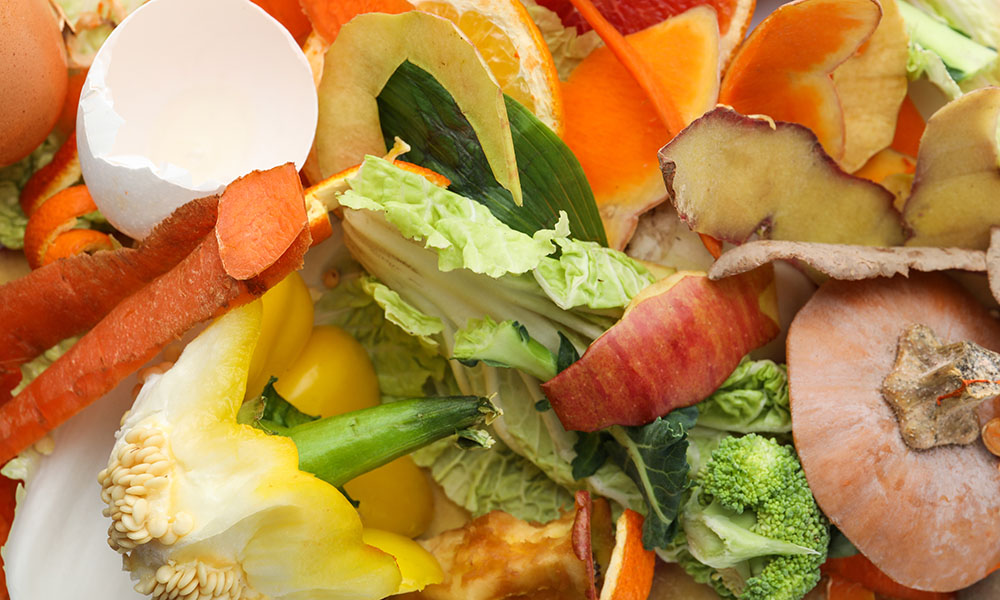Tips and inspiration
- You can squeeze more goodness out of your vegetable scraps before they reach the food waste bin or compost heap. Freeze your onion ends, carrot peel or celery tops from your cooking, until you build up enough to make a hearty vegetable stock.
- Watch a video on how to make vegetable stock.
- Good vegetable scraps to collect include carrot peel, onion ends and papery layers, celery hearts and strings, shriveled garlic, parsley stems and mushroom stems.
- Avoid cruciferous vegetables such as broccoli, cauliflower, cabbage and kale, as they’ll make your stock bitter. Also avoid potatoes, as they’re too starchy.
- Add some fresh ingredients to balance the flavour. An extra onion, bay leaves, peppercorns, tarragon and thyme are all good options.

The big picture
If food waste were a country, it would rank as the third-largest emitter of greenhouse gases globally.
Source: United Nations’ Healthy Diets for a Healthier Planet Report
An image of a pile of food waste by New Africa/ Shutterstock
Why is this action beneficial?
Reduce waste
Minimising our waste is key to reducing the environmental impact of our food. Vegetable peel, stalks and leaves are often thrown out unnecessarily when instead they could be roasted, pickled, curried or blended into soup.
Reduce emissions
Shockingly, food waste is responsible for 8% of global emissions. When food rots in landfill, it releases methane – a greenhouse gas that has more impact on global warming than carbon dioxide. By composting and reducing how much we throw away, we can bring these emissions down.
Save money
By using vegetable scraps you’ll make your food go further and save on having to buy stock.
Learn a new skill
You can freeze your vegetable stock and use it in your cooking or try new plant-based recipes. It’s great for making soups, stews, risotto, gravy and more!
Improve health
By making your stock at home you’re squeezing all the nutrients from your vegetables. This means you can have full control over the ingredients as well as the amount of salt in the food you’re eating. Shop-bought stock can be high in salt and sugar, consuming too much of either of these can lead to health issues, such as diabetes and heart conditions.
We’re still developing the Find Your Climate Action tool. Watch this space for updates and share your feedback with us to help improve it.
More ways to get involved
Fixing Our Broken Planet
The Find Your Climate Action tool is part of our Fixing Our Broken Planet programme, which is designed to inspire people to take action to help the planet. The programme also includes a new gallery as well as experiences and events.
Join our community
Sign up to our new monthly Planet Fixers newsletter for tips on living sustainably as well as interesting articles and upcoming events.
Funding
We thank all who have generously contributed to Fixing Our Broken Planet. Learn more about our sponsors and donors.